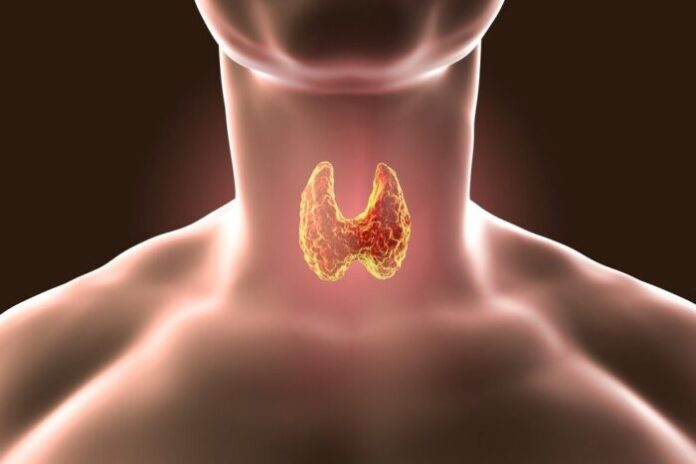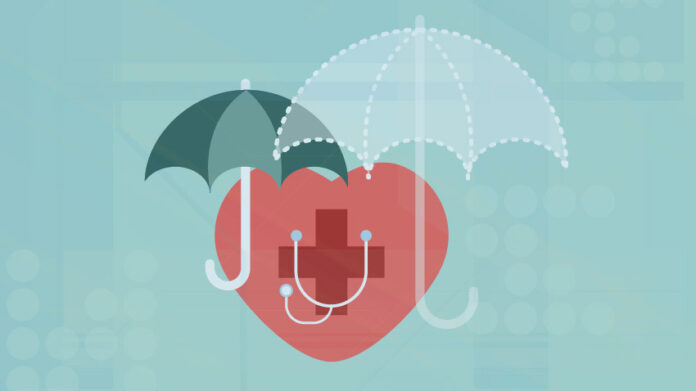Staying physically and mentally healthy should be everyone’s priority in life. Working for long hours to earn thousands of dollars every month will be useless if you have poor health. Being sick all the time can even lead to bankruptcy and medical debts.
Aside from eating well-balanced meals and having an active lifestyle, being aware of the most common health problems you can experience in life can also help you remain healthy. This information will make it easier for you to determine how you can change your lifestyle, especially if these health conditions run in your family.
Listed below are six common health problems you may experience in life:
1. Thyroid Disorders

Your thyroid glands work by controlling how your cells use energy for food and affecting your metabolism process. The hormones present in your thyroid glands—thyroxine and triiodothyronine—are essential to ensure that the cells in your body work properly.
Thyroid disorders are common health problems that affect more than 20 million Americans. Thyroid disorders are medical conditions in which your thyroid is unable to produce the right amount of hormones.
When your thyroid produces too many hormones, your body uses energy too quickly and can make you feel tired fast. This condition is called hyperthyroidism. On the other hand, if your thyroid produces fewer hormones, your body becomes sluggish and can become the reason you’ll gain weight and can no longer tolerate cold temperatures. This condition is known as hypothyroidism. When left untreated, thyroid disorders can damage your peripheral nerves and cause numbness and pain to your arms and legs. Thyroid disorder or cancer is caused by the body being exposed to excessive levels of radiation, which is now largely eliminated thanks to high-tech protection like thyroid shield that wraps around your neck and covers your thyroid to block radiation produced by taking X-ray images.
Some of the most common symptoms of thyroid disorders are enlarged thyroid glands, goiter, and muscle weakness. You can learn more about the symptoms of thyroid disorders by looking for a useful resource online or asking a healthcare professional about the condition.
2. Brain Atrophy

It’s common knowledge that your body changes as you age but do you know that age significantly impacts the size and functions of your brain? In its simplest terms, brain atrophy is the loss of cells in the brain. This health problem also destroys the ability of your brain’s cells to communicate with the body, resulting in stroke and Alzheimer’s disease.
Brain atrophy is a common health problem among seniors and can affect their life expectancy. People with Alzheimer’s disease, for example, live around four to eight years after their diagnosis. Some of the most common symptoms of brain atrophy or neurodegenerative diseases include dementia and seizures.
3. High Blood Pressure

A lot of people consider high blood pressure as a silent killer because this health problem doesn’t always come with symptoms. High blood pressure can worsen over time and increase your risk of heart failure, heart disease, and even stroke.
According to statistics, over 1.13 billion people around the world suffer from high blood pressure or hypertension. This health problem is often caused by many different factors, such as consuming foods with too much salt, excessive alcohol consumption, and smoking. Being diagnosed with obesity, chronic kidney diseases, and thyroid disorders can also increase your risk of high blood pressure.
4. Skin Cancer

The skin is the biggest organ of the human body that works by protecting your organs from bacteria present in the environment. Your skin also regulates your body temperature, and could even influence your mental state. The skin plays an important role in one’s physical and mental health, but not everyone actually exerts effort to take care of it.
Skin cancer is another common health problem that you may experience in your life. This health problem is caused by excessive exposure to the sun’s ultraviolet rays. Spending time outdoors for long periods of time can damage the DNA of your skin and disrupt the body’s natural ability to repair and reproduce skin cells.
Skin cancer is often characterized by a reddish or raised patch on the skin, or having open sores that bleed or remain open for weeks. Unusual lumps on the skin that don’t seem to go away after a few weeks is also a symptom of skin cancer.
5. Type 2 Diabetes

The lifestyle you have right now can significantly affect your susceptibility to developing chronic diseases, such as type 2 diabetes. Although most cases of type 2 diabetes are hereditary, your lifestyle choices are also crucial. Unhealthy meal planning choices (diets filled with high-fat meals with minimal fiber intake), an inactive lifestyle, and being overweight can drastically increase your chances of developing diabetes.
Since 2015, 400 million people worldwide have been living with type 2 diabetes. Being diagnosed with type 2 diabetes can affect the quality of your life because this health problem can cause excessive thirst, frequent urination, and tiredness. Type 2 diabetes can also increase your risk of developing other serious health conditions, such as kidney damage, nerve damage, foot ulcers, and depression.
6. Lung Cancer

It’ll be challenging for any human being to live if their lungs are damaged. The lung is a vital organ because it brings air from the atmosphere and then circulates oxygen into the bloodstream. Your lungs also remove carbon dioxide, along with other waste gases that aren’t essential to human health. Your lungs are also responsible for your body’s breathing mechanism.
However, because of peoples’ unhealthy lifestyle choices, lung cancer has become more and more prominent today. According to statistics, lung cancer is the most common cancer in the world that accounts for 1.8 million deaths and 2.1 million new cases since 2018. Cigarette smoking is the leading cause of lung cancer, followed by prolonged exposure to secondhand smoke.
Recovering from lung cancer isn’t a guarantee that you can live a healthy life. Lung cancer survivors still experience side effects, namely anxiety, depression, hearing loss, and long-term neuropathy. This happens because lung cancer treatments involve using high levels of radiation that can have permanent effects on the body. In some cases, these treatments can cause cardiac toxicities that can cause heart failure.
Work With Healthcare Professionals
It’ll be easier to stay healthy and avoid common health problems in life when you regularly seek the help of healthcare professionals. They can provide effective tips on how you can better take care of your health so you can continue to maximize opportunities in life!









